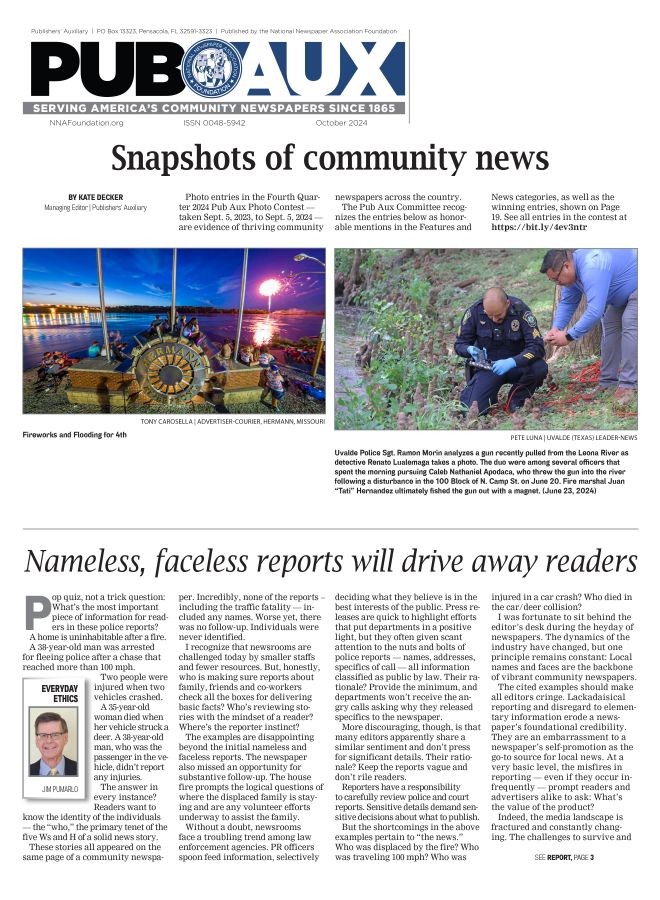FOIA reform bill set to become law
Jul 6, 2016
By Richard Karpel
NNA Public Policy
WASHINGTON—Generally speaking, public policy in Washington is a game of inches. Move the ball forward a little, consolidate your gains, and then do it again. Keep pushing your agenda until you eventually reach the goal line.
When the U.S. House voted on June 13 to approve the Senate version of the FOIA Improvement Act of 2016, it wasn’t a revolution in open government. But the legislation takes several meaningful steps that will help requesters pry information from the tight clutches of the executive branch of the U.S. government.
Perhaps most importantly, it codifies the presumption that information produced by the government belongs to its citizens. In his first day in office in 2009, President Obama issued an executive order instructing federal agencies to follow that presumption. Now it is a matter of law. It means agencies may withhold information only if they have a good reason to believe that disclosure would cause “specific, identifiable harm” to an interest otherwise protected by FOIA.
FOIA will also have a more forceful advocate in the newly empowered Office of Government Information Services. The bill ensures that OGIS speaks with an independent voice, eliminating the requirement that it seek input from other agencies and the Office of Management and Budget before making its recommendations for improving FOIA available to the public.
The FOIA Improvement Act also impels the executive branch to modernize by creating a single FOIA web portal to accept requests for any agency; requires agencies to submit annual FOIA processing statistics in time for Sunshine Week; and limits the ability of agencies to keep internal deliberations confidential to a period of 25 years.
The House approved a bill (S. 337) that passed the full Senate March 15. The House had originally passed its own FOIA reform bill Jan. 11, and it contained a few provisions that were not included in the Senate version. NNA and its allies in the Sunshine in Government Initiative pushed for the House to accept the Senate version to avoid the delay and uncertainty of the conference committee that would have been required to work out the differences between the two bills. In the past, conference committees have often served as the graveyard of FOIA reform bills, despite widespread support in both chambers.
On June 23, the bill was sent to Obama, who had previously announced that he would sign the bill. His statement noted that the White House “continue(s) to believe that extending FOIA to Congress would serve as another important step in increasing government transparency.”
The President had 10 working days to sign the bill. It would be a surprise if he doesn’t indulge his flair for the dramatic by signing it on the 10th day—July 4—the 50th anniversary of President Lyndon Johnson’s signing of the original Freedom of Information Act.







